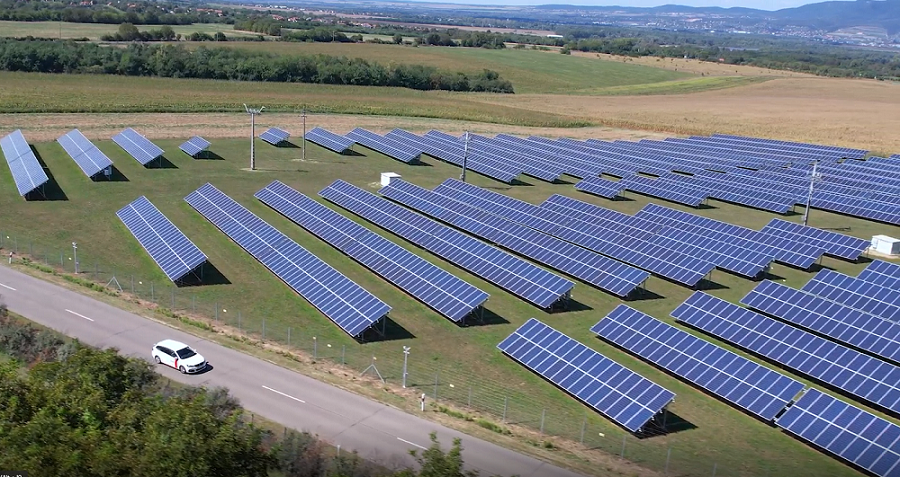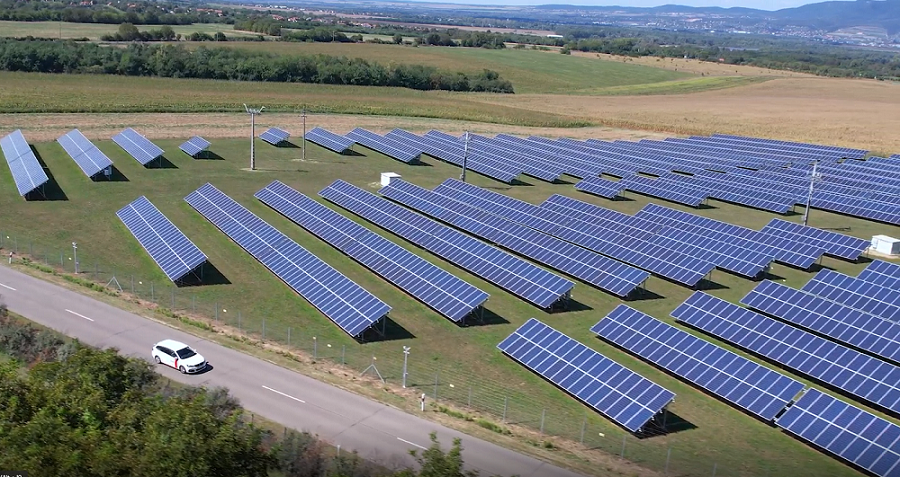MNB Monetary Council Leaves Base Rate on Hold at 13%

Photo by Adriana Iacob/Shutterstock.com
The Monetary Council of the National Bank of Hungary (MNB) decided to leave the base rate on hold at 13%, but voted to narrow the central bank's "interest rate corridor" at a monthly policy meeting on Tuesday, according to a report by state news wire MTI.
The council decided to cut the central bank's O/N collateralized loan rate by 250 bp to 14%, while reducing the O/N deposit rate by 50 bp to 12%.
The rate-setters had cut the O/N collateralized loan rate by 100 bp at each of the previous policy meetings since May, while leaving the O/N deposit rate unchanged.
Base Rate Becomes Effective Policy Rate
In a statement released after the meeting, the council said the gap between MNB's one-day quick deposits offered at daily tenders - which stands at 14% at present - would close and the base rate would be paid on the instrument for three days, from September 27 until 29, after which time the quick deposit tenders will cease.
"By closing the gap between the interest rate on the overnight quick deposit tender and the base rate, monetary policy will enter a new phase, which will provide an opportunity to develop a simpler set of instruments adapting to the changed environment," the council said.
"From September 27, 2023, the central bank base rate will become the [MNB's] effective interest rate," it added.
From October 1, MNB will pay the base rate on both mandatory reserves - excluding the part on which no interest is paid - and optional reserves. The optional reserve ratio will be phased out from 2024.
From September 27, the pricing of central bank discount bills as well as rates on long-term central bank variable-rate deposits will be aligned with the base rate.
MNB will maintain its presence in the swap market and continue to announce T/N swap tenders on workdays with an allotment of EUR 6 bln.
Policymakers Conclude "Normalization"
At a press conference after the meeting, MNB deputy governor Barnabás Virág said policymakers had "concluded the normalisation of the extraordinary interest rate environment" with the 100 bp reduction in the effective interest rate.
He said the reserve account would be available to banks without an upper limit remunerated at the base rate.
He called the decision to make the interest rate corridor symmetrical a "technical" one, pointing to the low utilisation of the instruments that define the corridor. He added that the lower bound of the interest rate corridor would serve as guidance for interest paid on FX-swap quick tenders.
Inflation remain "unacceptably high", he said, adding that monetary policy conditions needed to "remain tight" to achieve price stability in a sustainable manner.
Policymakers will take decisions based on the outlook for inflation and the developments in the risk environment while assessing incoming macroeconomic data and taking a "step-by-step, cautious approach", Virág noted.
"We are not on autopilot," he added.
He said clear communication is "key" and noted MNB's regular publication of analyses after the release of macroeconomic indicators such as GDP, inflation, and current account.
MNB Puts Year-end CPI at 7-8%
Touching on the projections in the MNB's latest quarterly Inflation Report, which policymakers discussed at the meeting on Tuesday, Virág said disinflation is "widespread and general" and put year-end CPI in a range of 7%-8%.
The inflation path for 2024 has shifted upwards "slightly" because of the carry-over effect of higher fuel prices, he added.
MNB puts average annual inflation at 17.6%-18.1% for 2023, compared to a 16.5%-18.5% range in its previous quarterly forecast published in June.
The central bank sees average annual inflation falling to 4%-6% in 2024 and to 2.5%-3.5% in 2025.
The report points to a "gradual increase" in Hungary's economic performance starting in the third quarter and puts full-year GDP for 2023 in a range of -0.5% to 0.5%. GDP growth is expected to reach 3%-4% in 2024 and 2025.
MNB sees Hungary's current account deficit falling under 1% of GDP in 2023.
Virág noted that policymakers see inflation risks on the upside and GDP risks on the downside.
SUPPORT THE BUDAPEST BUSINESS JOURNAL
Producing journalism that is worthy of the name is a costly business. For 27 years, the publishers, editors and reporters of the Budapest Business Journal have striven to bring you business news that works, information that you can trust, that is factual, accurate and presented without fear or favor.
Newspaper organizations across the globe have struggled to find a business model that allows them to continue to excel, without compromising their ability to perform. Most recently, some have experimented with the idea of involving their most important stakeholders, their readers.
We would like to offer that same opportunity to our readers. We would like to invite you to help us deliver the quality business journalism you require. Hit our Support the BBJ button and you can choose the how much and how often you send us your contributions.










